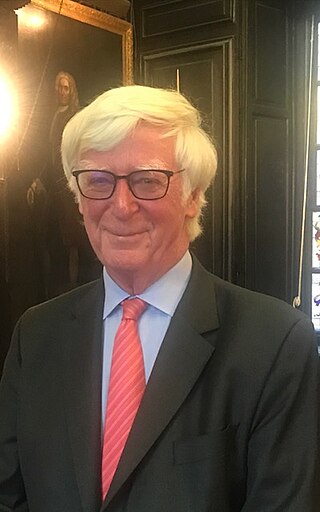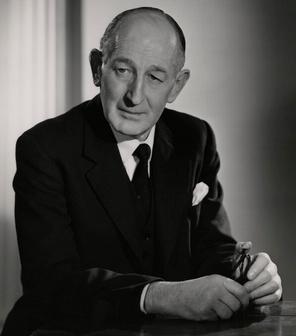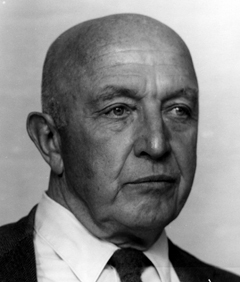This article has multiple issues. Please help improve it or discuss these issues on the talk page . (Learn how and when to remove these template messages)
|
John Chalmers (born 21 September 1927 in Aberdeen) is a Scottish orthopaedic surgeon.
This article has multiple issues. Please help improve it or discuss these issues on the talk page . (Learn how and when to remove these template messages)
|
John Chalmers (born 21 September 1927 in Aberdeen) is a Scottish orthopaedic surgeon.
Chalmers studied medicine at the University of Edinburgh. After qualifying as MB ChB in 1950 he worked as House officer in different hospitals. In 1952 he joined the Royal Army Medical Corps and became a Fellow of the Royal College of Surgeons of England one year later. From 1954 to 1957 he had his orthopaedic education at the Royal National Orthopaedic Hospital. He spent an Orthopaedic Fellowship at the University of Illinois and in 1958 was appointed as Lecturer at the University of Edinburgh. In 1961 he graduated M.D. [1] and in 1963 also qualified as Fellow of the Royal College of Surgeons of Edinburgh.
For a period of 32 years he was Senior Lecturer and Consultant at the (old) Royal Infirmary of Edinburgh and at the Princess Margaret Rose Orthopaedic Hospital. He was an examiner for the Fellowship of the Royal College of Surgeons of Edinburgh and the FRCS Ed Orth. and for the M. Ch. Orth. of Liverpool University. In 1982 he was elected a member of the Aesculapian Club. [2]
With his wife Gwyneth he has four children and six grandchildren.

Sean Patrick Francis Hughes is emeritus professor of orthopaedic surgery at Imperial College London where he was previously professor of orthopaedic surgery and head of the department of surgery, anaesthetics and intensive care. Earlier in his career he had been professor of orthopaedic surgery at the University of Edinburgh.

Sir Alexander Gillies was a New Zealand orthopaedic surgeon who played a major role in establishing orthopaedics as a surgical speciality in New Zealand. One of the first to practise hip replacement in New Zealand, he was prominent in the foundation of the New Zealand Orthopaedic Association and became its first president. He was associated with a number of humanitarian causes including the New Zealand Red Cross Society of which he was chairman and latterly president.
John H. Healey is an American cancer surgeon, researcher, and expert in the surgical treatment of benign and malignant bone tumors and other musculoskeletal cancers. He serves as Chair of the Orthopaedic Service and Stephen P. McDermott Chair in Surgery at Memorial Sloan-Kettering Cancer Center (MSKCC), as well as Professor of Surgery at Weill Cornell Medical College, in New York, NY.

Sir Harold Jalland Stiles was an English surgeon who was known for his research into cancer and tuberculosis and for treatment of nerve injuries.
First Source - Orthopedic Surgery being a "choice."
Ashok Rajgopal is an Indian orthopaedic surgeon, credited with close to 20,000 Arthroscopic and over 35,000 Total Knee Arthroplasty surgeries and reported to be one of the most experienced in his field in India. He was honoured by the Government of India in 2014, by bestowing on him the Padmashri, the fourth highest civilian award, for his services to the fields of orthopaedic surgery. He has also been awarded the Dr. BC Roy award by the Medical Council of India to "Recognize the Best Talents in Encouraging the Development of Specialties in Different Branches in Medicine" for 2014.
Gertrude Marian Amalia Herzfeld was an English surgeon, one of the first female surgeons to work in Scotland and the first woman paediatric surgeon. The second female fellow of the Royal College of Surgeons Edinburgh, and the first practicing female fellow, Herzfeld chaired the Edinburgh city branch of the British Medical Association from 1960 to 1962, and was National President of the Medical Women's Federation from 1948 to 1950.
The Princess Margaret Rose Orthopaedic Hospital was a hospital in Fairmilehead, Edinburgh, opened in 1932 and closed in 2000. After closure, with services transferred to the new Royal Infirmary of Edinburgh, it was demolished and the site sold for housing.
Puliyur Krishnaswamy Duraiswami (1912–1974) was an Indian orthopedic surgeon, medical writer and the Director General of Health Services under the Government of India. Besides being a Fellow of the Royal College of Surgeons of England and a founder Fellow of the National Academy of Medical Sciences, he published several articles on orthopedics and was a recipient of Robert Jones Medal and the Presidential Merit Award of the British Orthopaedic Association. The Government of India awarded him the third highest civilian honour of the Padma Bhushan, in 1966, for his contributions to the Medical Science.

Henry Alexis Thomson CMG FRCS FRCSE (1863–1924) was a Scottish anatomist and medical author. He was Professor of Systematic Surgery at the University of Edinburgh from 1909 to 1923. He was an honorary member of the French Association of Surgeons and of the American Society of Clinical Surgery.

Sir Henry Wade PRCSE FRSE DSO CMG was a Scottish military and urological surgeon. He was elected president of the Royal College of Surgeons of Edinburgh in 1935. His collection of anatomical specimens was donated to Surgeon's Hall in Edinburgh and is known as the Henry Wade Collection.

Sir Walter Mercer KBE FRSE FRCSEd FRCPE LLD was a Scottish orthopaedic surgeon. He was President of the Royal College of Surgeons of Edinburgh from 1951 to 1956. He was affectionately known as 'Wattie.' His collection of anatomical specimens was donated to Surgeon's Hall in Edinburgh, and is now known as the Walter Mercer Collection.

John Ivor Pulsford James was a British orthopaedic surgeon. He was professor of orthopaedic surgery at the University of Edinburgh from 1958 to 1979. Most commonly known as "JIP", he was secretary then president of the British Orthopaedic Association which later awarded him its honorary fellowship. James attracted orthopaedic specialists to work in Edinburgh, encouraging them to develop an interest in a specialist area of orthopaedics, and in this way he was able to establish a comprehensive regional orthopaedic service. He made contributions to hand surgery and surgical treatment of scoliosis, and was a prime mover in promoting specialist training and qualification in orthopaedic surgery in the UK.

Sir Herbert John Seddon was an English orthopaedic surgeon. He was Nuffield Professor of Orthopaedic Surgery at the University of Oxford, where his work and publications on peripheral nerve injuries gained him an international reputation. His classification of nerve injuries forms the basis of that in use into the 21st century. He went on to become director of the new Institute of Orthopaedics in London and subsequently the first Professor of Orthopaedics in the University of London. In this role he directed basic science research into orthopaedic conditions and developed postgraduate training in orthopaedic surgery. He was President of the British Orthopaedic Association, and was knighted in 1964 for services to orthopaedics.
Gopal Krishna Vishwakarma, more popularly known as G K Vishwakarma, was an eminent orthopedic surgeon, academician and public health administrator. He was the Director General of Health Services from October 1986 to his retirement in October 1992. He was awarded the Silver Jubilee Award (1983) and the Dr. B. C. Roy Award by Medical Council of India, The Government of India, in recognition of his contributions to the field of medicine and public health honored him with the Padma Shri (1985) one of India's highest civilian awards in India.

James Alexander Ross MBE, FRCSEd was a Scottish surgeon awarded the MBE for his service in the Second World War. He was a leading member of the surgical team which, in 1960, carried out the first successful kidney transplant in the United Kingdom. He served as President of the Royal College of Surgeons of Edinburgh.

Ian Scott Smillie OBE, FRCSEd was a British professor of orthopaedic surgery who became an international authority on conditions of the knee. He devised techniques and instruments to facilitate the surgical excision of the damaged knee meniscus. He was an early advocate of specialist team care in orthopaedics and of early mobilisation. His textbooks Injuries of the knee joint and Diseases of the knee Joint were widely read throughout the world. In 1981 he was elected president of the International Society of the Knee.

Walter Quarry Wood MD, ChM, FRCSEd was a Scottish surgeon who became known as a collector of Scottish Colourists. He worked at the Royal Infirmary of Edinburgh (RIE) and was president of the Royal College of Surgeons of Edinburgh.

Ruth Wynne-Davies or Ruth Blower (1926–2012) was a British medical doctor and scholar of orthopaedics. She researched and wrote about clubfoot and scoliosis.
Justin Peter Cobb is a British professor of orthopaedic surgery at Imperial College London, known for introducing medical robotics into orthopaedic surgery. He is a member of the Royal Medical Household and was royal orthopaedic surgeon to the Queen. He is on the staff at King Edward VII's Hospital (KEVII) and is civilian advisor in orthopaedics to the Royal Air Force (RAF). His research has also included themes relating to designing new devices such as for ceramic hip resurfacing, 3D printing in orthopaedics, and training in surgical skills. He is a director of the MSk laboratory based in the Sir Michael Uren Hub.
{{cite journal}}: Cite journal requires |journal= (help)